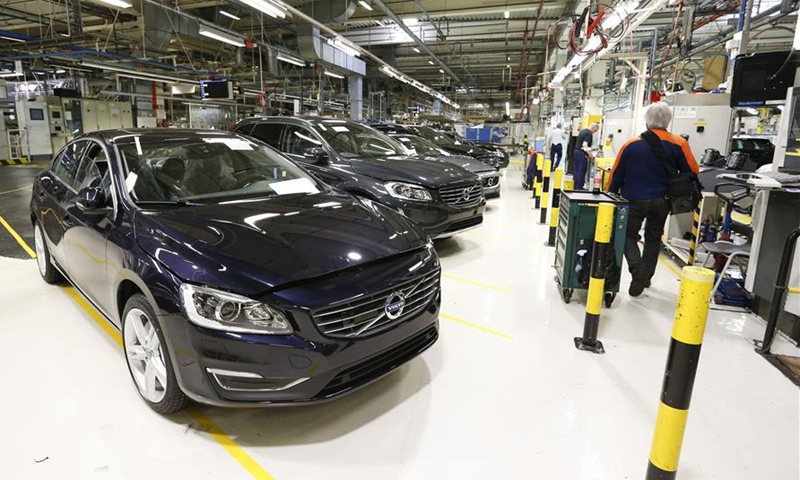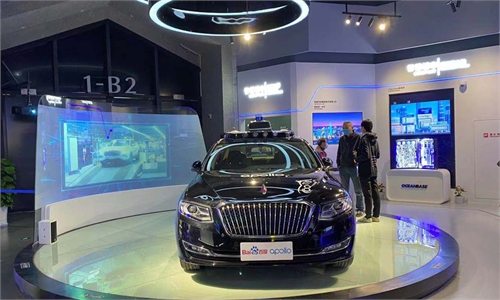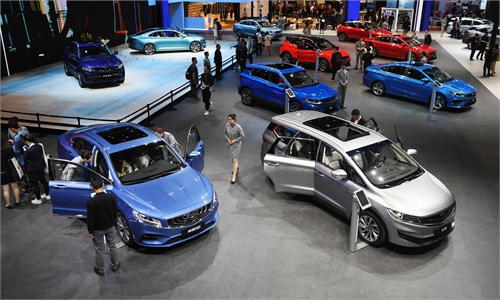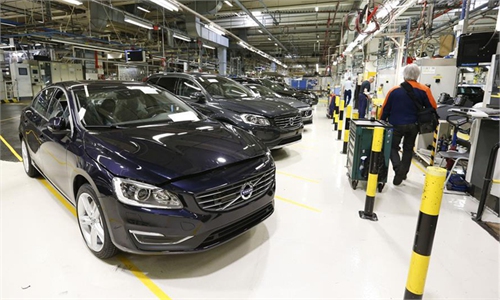
File photo taken on May 24, 2017 shows a worker walks past newly-assembled cars at the Volvo Car Gent in Ghent, Belgium. Volvo Car Gent, the second largest Volvo assembly line except that in Sweden, was purchased by the Chinese car manufacturer Geely Holding Group in 2010.Photo:Xinhua
Volvo Cars, a sister company of Chinese car maker Geely Holding, to take full ownership of its car manufacturing plants and sales operations in China by acquiring Geely Holding's stake, in order to maintain its influence in its largest market, the company told Global Times on Wednesday.
The acquisition of an additional 50 percent of the shares in Daqing Volvo Car Manufacturing Co and Shanghai Volvo Car Research and Development Co will strengthen Volvo Cars position in China, said the company.
Following the transactions, Volvo Cars will receive full ownership of its manufacturing plants in Chengdu of Southwest China's Sichuan Province and Daqing in Northeast Heilongjiang Province, its R&D facility in Shanghai and its national sales company in Chinese market.
"The acquisition will create a clearer ownership structure within both Volvo Cars and Geely Holding," said Daniel Donghui Li, Geely Holding chief executive officer. Håkan Samuelsson, chief executive of Volvo Cars also said Volvo Cars will become the first major oversea automaker with full ownership over its Chinese operations after the acquisition.
The transactions will be started in 2022 and be completed in 2023. The transactions are pending regulatory approvals.
Volvo Cars sold 166,617 cars in China, an increase of 7.5 per cent versus 2019. In the first half of 2021, sales increased 44.9 percent compared to the same period in 2020, and by 40.1 percent compared with the same period in 2019.
Global Times



